Stunning skills of the tribal peoples of the world
Categories: Nations
By Pictolic https://pictolic.com/article/stunning-skills-of-the-tribal-peoples-of-the-world.htmlThousands of years tribal peoples held in close contact with nature, taught them surprisingly accurate to read the tiny signs: to feel a change of climate, well way out in the woods and to the sea, to predict the displacement of the ice blocks, and find food and water.
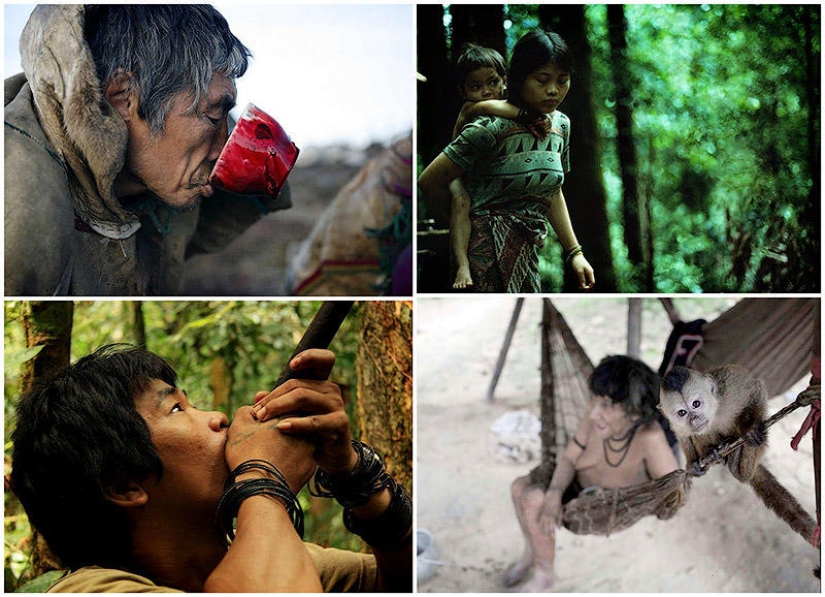
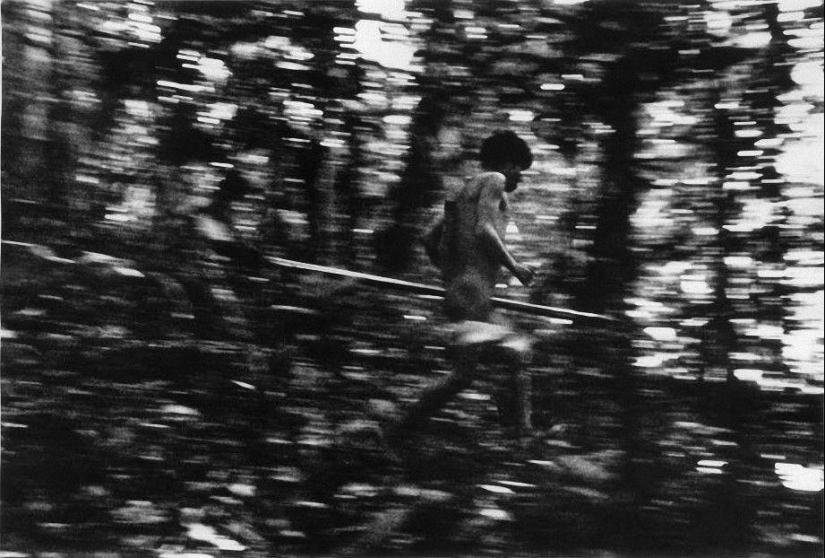
I'm a part of these places, says Davi Yanomami. I was born in the forest and know it well.
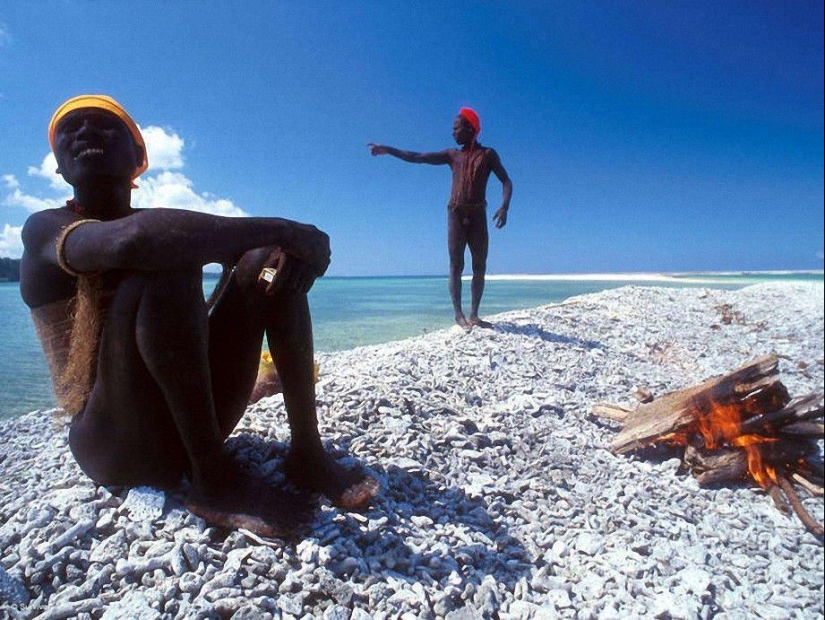
During a drought the people jarawa uses as a source of moisture juice Palma rattan. When they need to collect wild honey, beehive, they sprinkled the juice of this plant and bees fly.

"Sea Gypsies" of the people, the Moken who live on the shores of the Andaman sea, has developed an amazing ability to see under the water so that they can find food on the seabed. The sight of these people is sharper than the Europeans by about 50 percent.
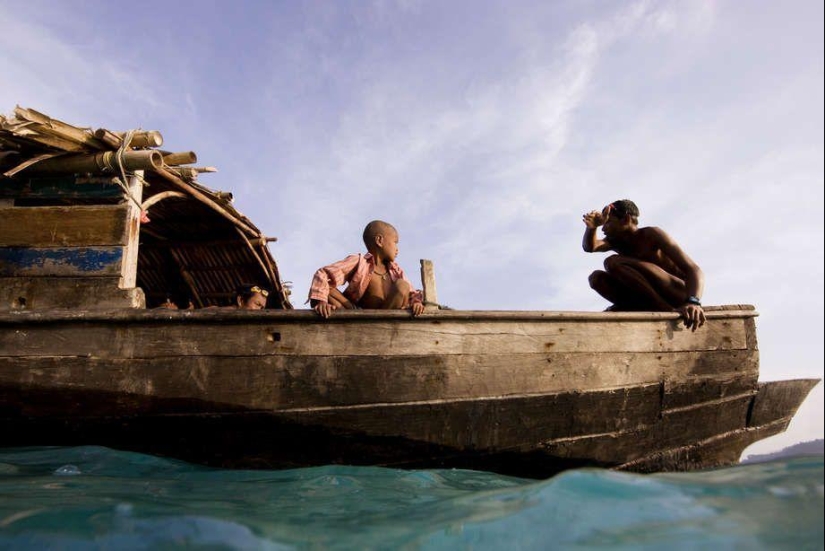
The story of the people of the Moken is transmitted orally from one generation to another. These stories are full of deep knowledge of the sea, winds and lunar cycles.
In one legend, for example, refers to an ominous La-bun – "wave that eats people." Before coming to La Boone, the sea begins in fear walking backwards.
When the devastating tsunami of 2004, the water had receded, the elders of the village, the Moken in Thailand will recognize a bad sign and led his countrymen, together with the nearby tourists to the nearest hills.
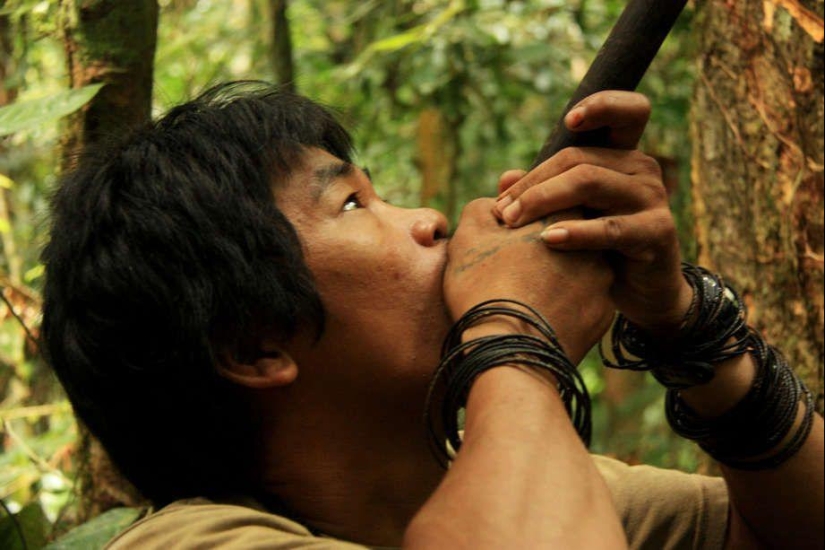
In the rain forests of Borneo lives a tribe Penn. These people hunt wild boars with brass tubes of solid wood from which they blow Darts soaked in the poisonous juice of a local tree.
This poison paralyzes the animal, it remains only to take him home. Themselves brass tubes are longer than two and a half meters.
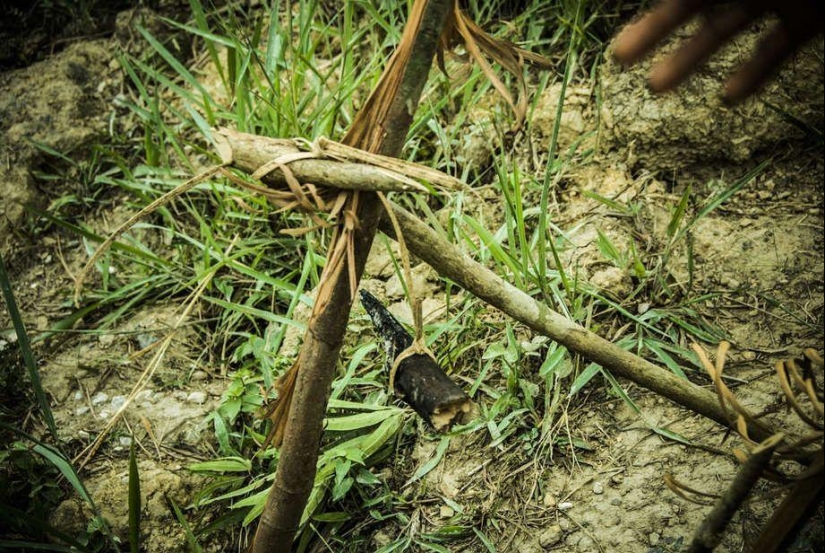
Until the 1960s, people Penan led a nomadic life, talking in the woods on the way a complex system of signals, which includes characters from sticks and leaves, called Ouro. With the help of switchgear can be reported, for example, that last here a person is sick or hungry.
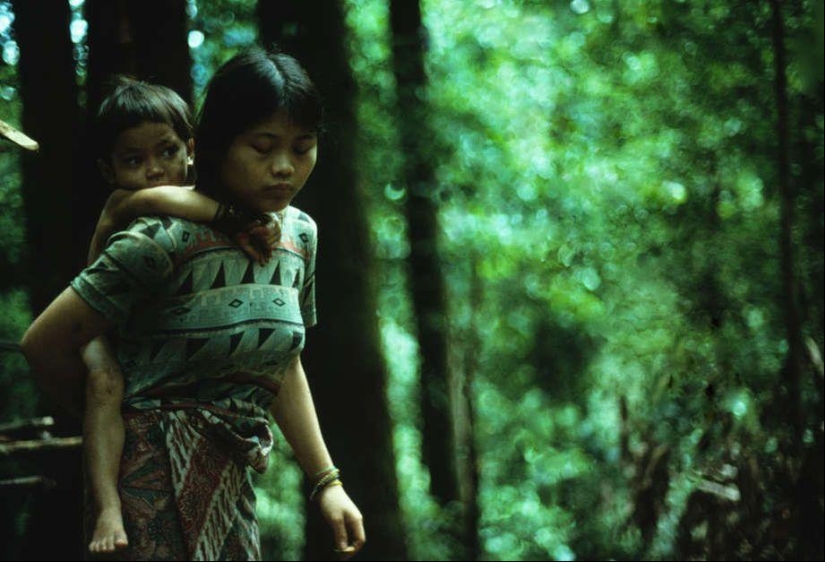
In the 1970‑ies on land that people Penan took many generations, the white men came – down to the forest, put the plantation of oil palm, spent the pipeline and built dams of hydroelectric power plants.
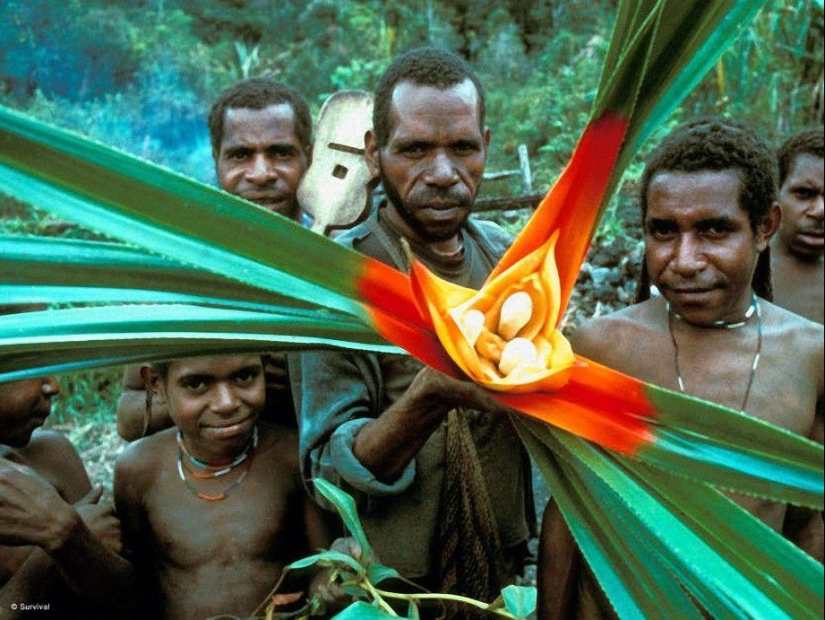
Many people living in tribes possess an encyclopedic knowledge of animals, and various fruits and herbs. Yanomami, for example, are used in everyday life of about 500 species of plants. And representatives of the Yali people of West Papua distinguish at least 49 species of sweet potato and 13 varieties of bananas.
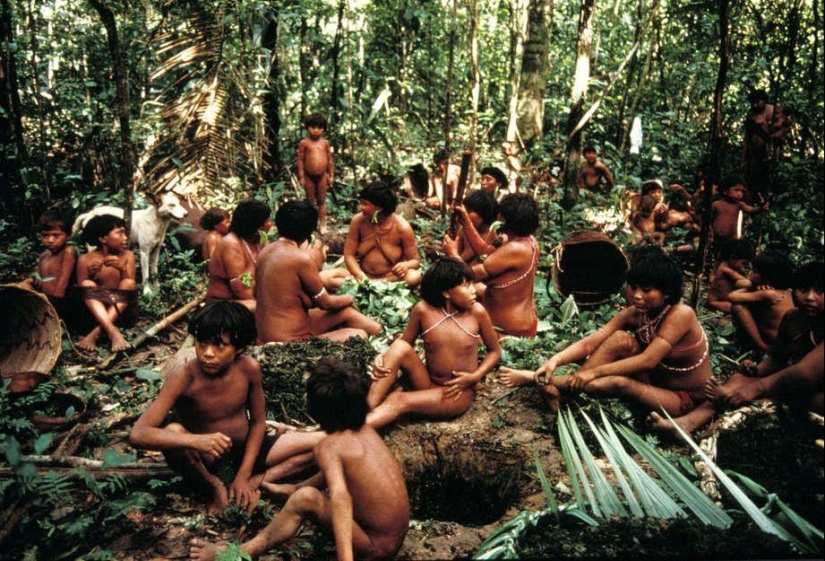
Over time, the tribe has developed a complex and holistic system of healing. Bark copii, for example, is used to treat eye infections, wine from the SAP of the acacia Greggie is used for diarrhoea, and the aroma of the crushed leaves are inhaled for colds and nausea.
Many drugs of modern medicine was developed through observations and experiences of these people and saved millions of lives. For example, poison curare that hunters Yanomami used to paralyze their prey, used in Western medicine as a muscle relaxant.
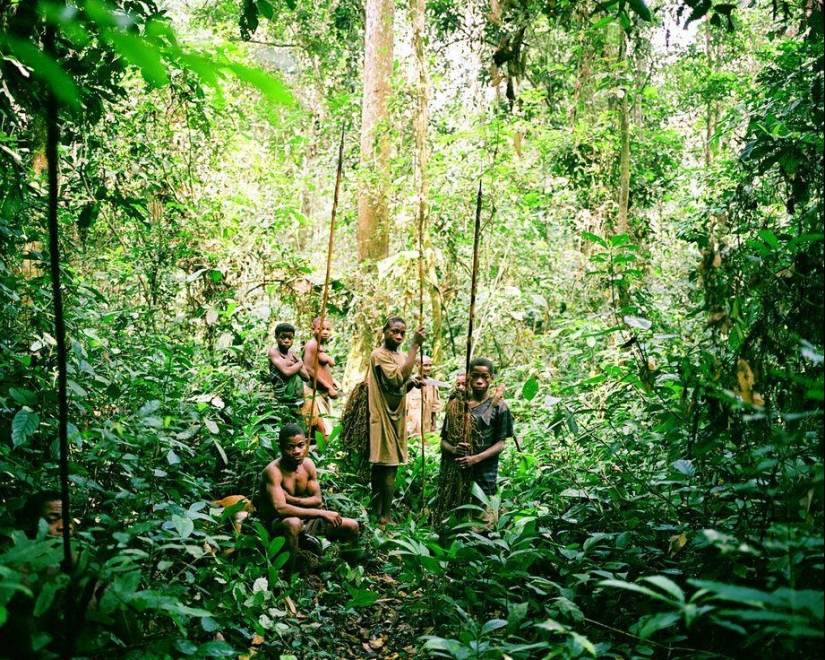
Most living tribes people are surprisingly sensitive to the behavior of animals. The pygmies as accurately mimic the sounds in distress antelope that can easily lure the animal out of the shelter. A Siberian hunters are able to perfectly imitate the cry of the Northern deer.
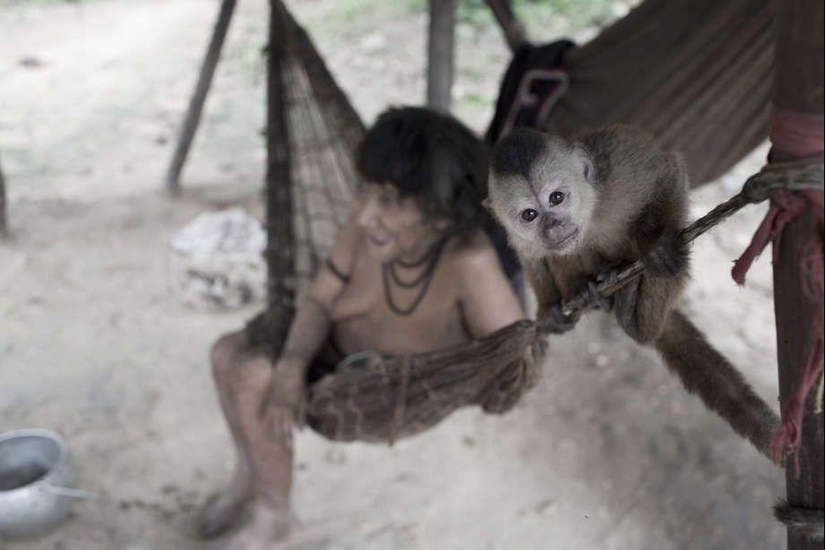
The women of the tribe ava take care of orphaned baby monkeys, including Howler and Capuchin; often they suckle her milk animals.
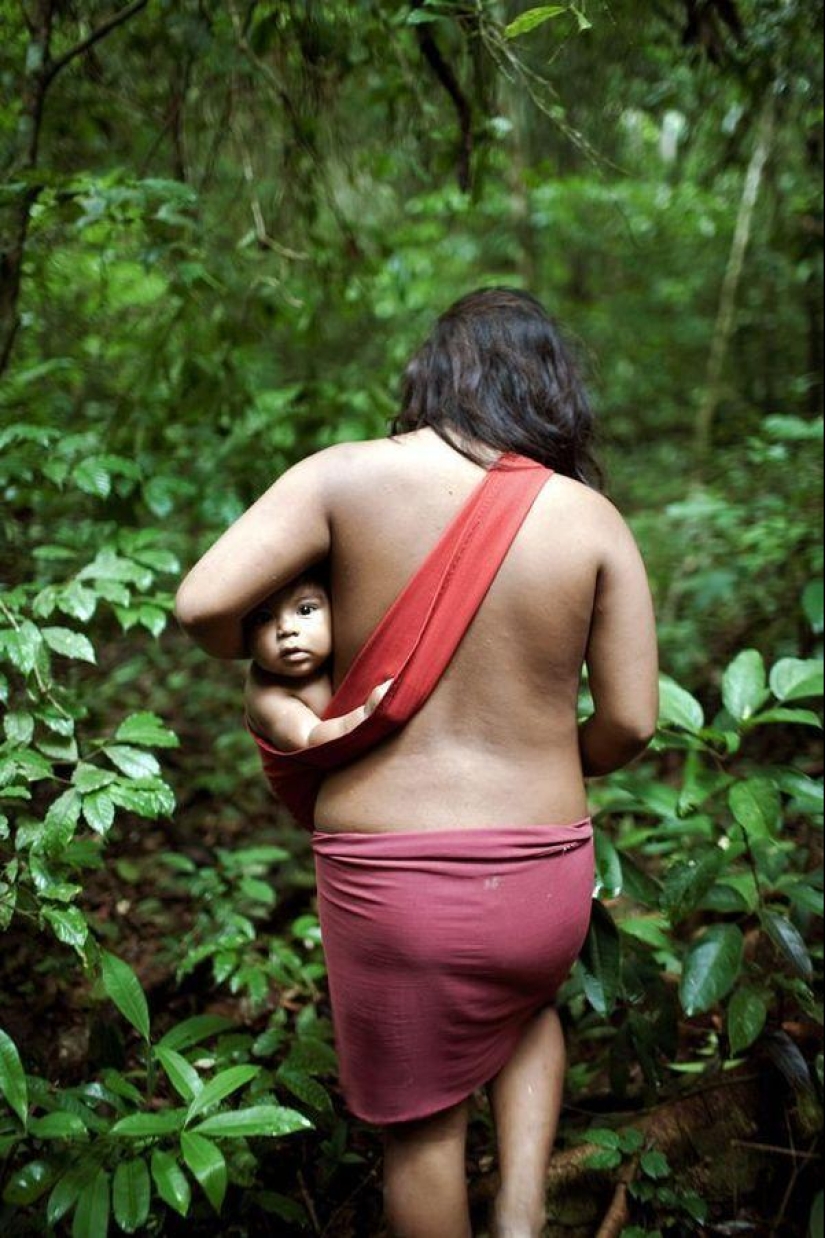
Women ava collect resin, Brazilian mahogany, which illuminate their homes in the evenings.
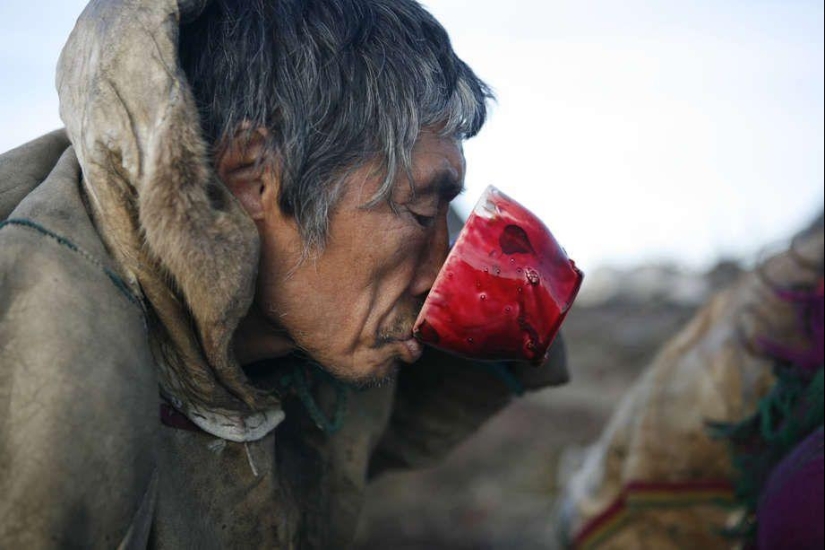
Reindeer is the most important part of the diet of the Nenets. It is eaten raw, frozen or boiled, together with the blood of freshly slaughtered animal, which contains many valuable vitamins. The fat content of the milk of a deer is 22 per cent – six times more than cow.
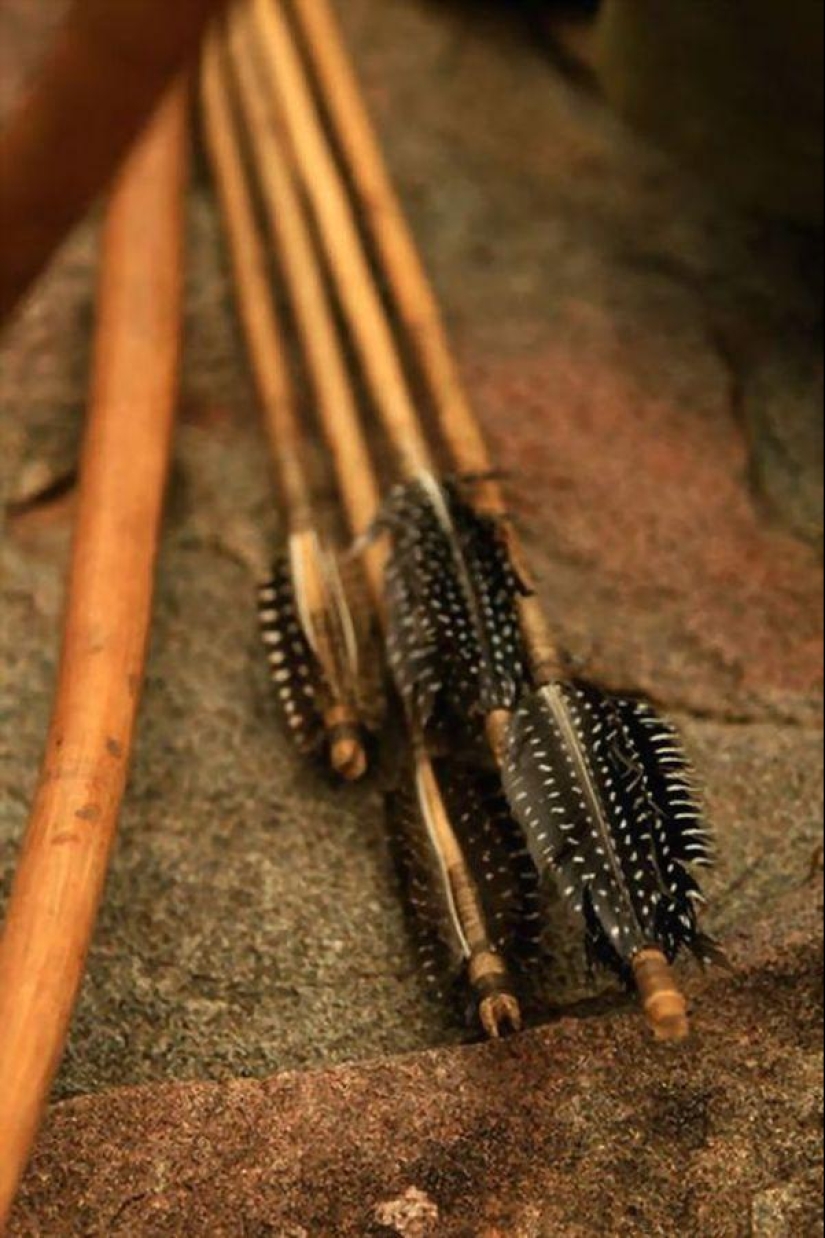
The string to their bows representatives of the Hadza tribe of Tanzania are made from ligaments of animals. Arrows carefully carved out of wood and then congorock operat using the feathers of a Guinea fowl. The tip is smeared with the poison of adenium.
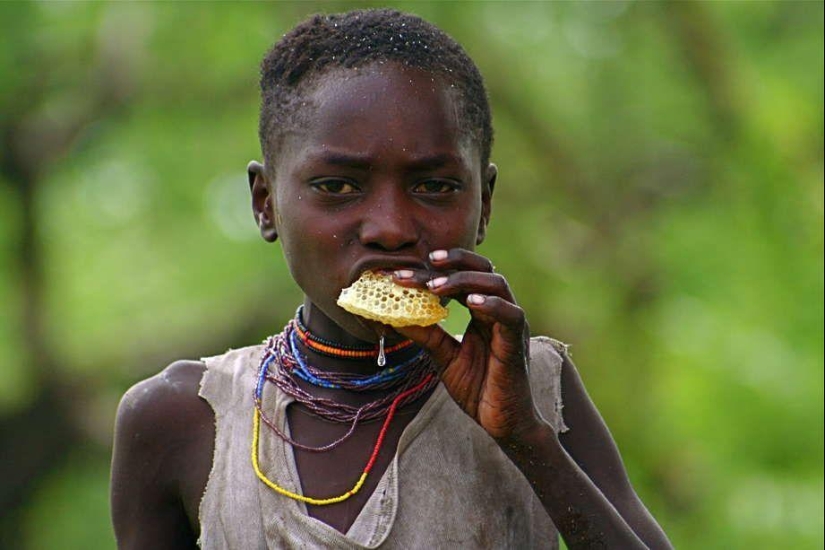
The people of the Hadza a particularly close relationship with birds honeyguides that lead them to the hives of wild bees. People whistling, birds tell them, flitting from tree to tree getting closer to honey. So, echoing, they reach the hive, which is usually hanging from the branches of a baobab tree.
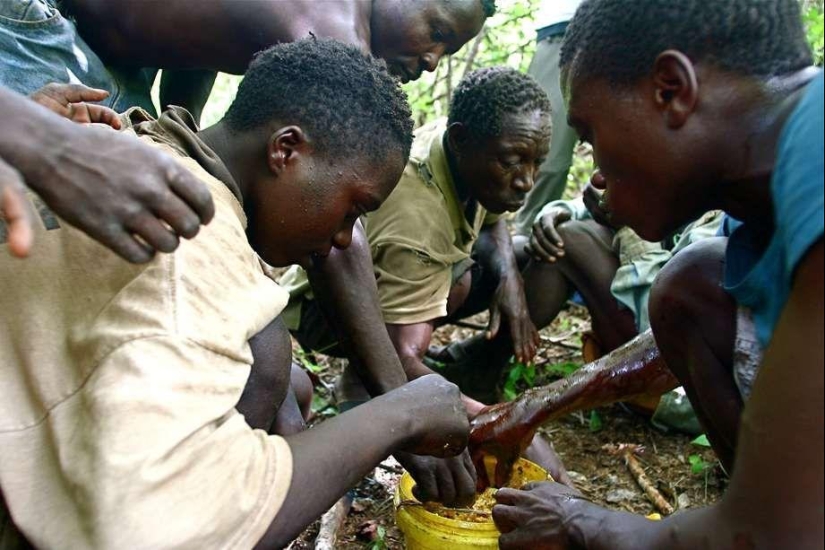
Then the Hadza were climbing a tree with a bundle of smoldering herbs, smoke out the bees and collect honey. The bird remains of the feast.
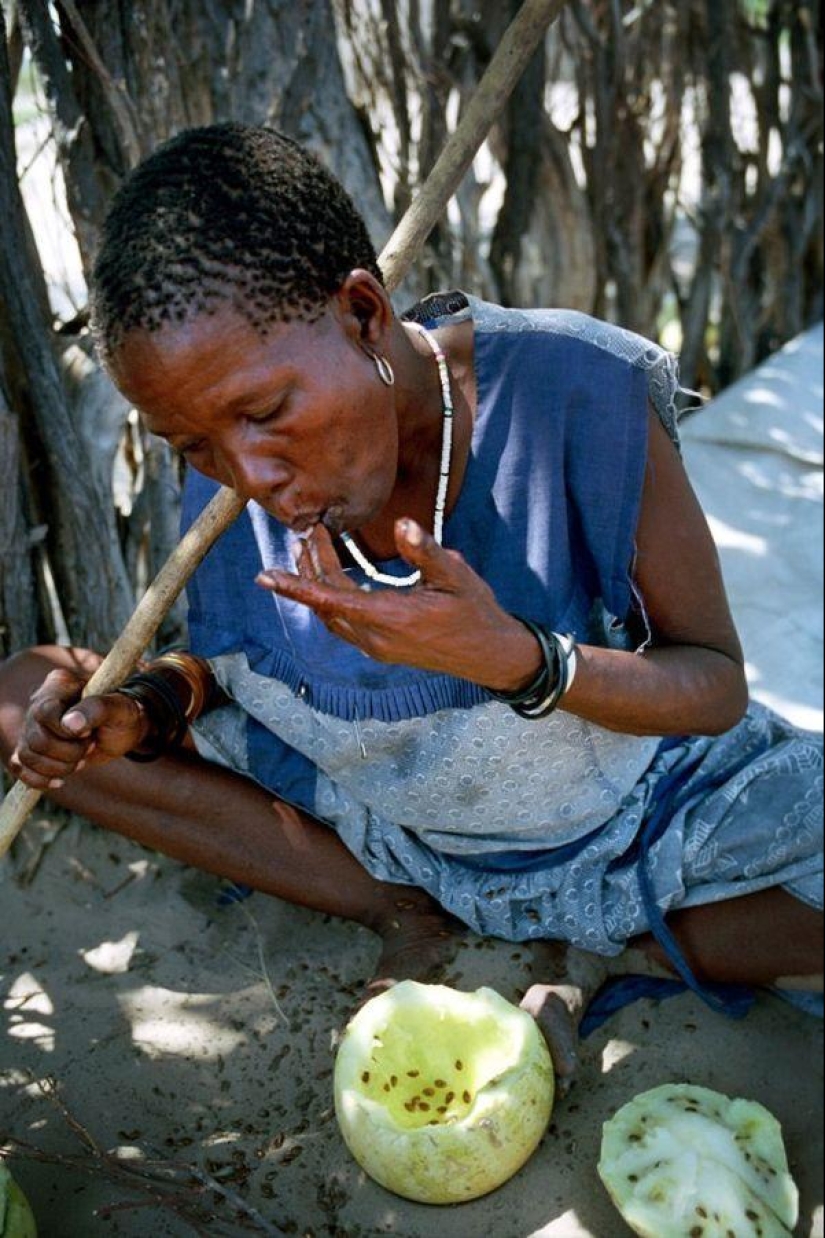
Woman, Bushmen from Botswana tries melon pulp for juiciness.
Usually the Bushmen get moisture from the depressions in the ground that fills with rain or from plants. The technique of water extraction worked with thousands of years of living in the desert.
Recent articles

It's high time to admit that this whole hipster idea has gone too far. The concept has become so popular that even restaurants have ...

There is a perception that people only use 10% of their brain potential. But the heroes of our review, apparently, found a way to ...
Related articles

All cultures, countries and different Nations, each nation has its own traditions and customs. But one thing remains common — ...

Polish photographer David Kashlikowski took amazing pictures of a glacier in the Karakoram mountain system in Pakistan from a ...

In 2010, the capital of South Korea, 10-million Seoul, received the honorary title of the capital with the best design. This city, ...

New Year's is a time to surprise and delight loved ones not only with gifts but also with a unique presentation of the holiday ...